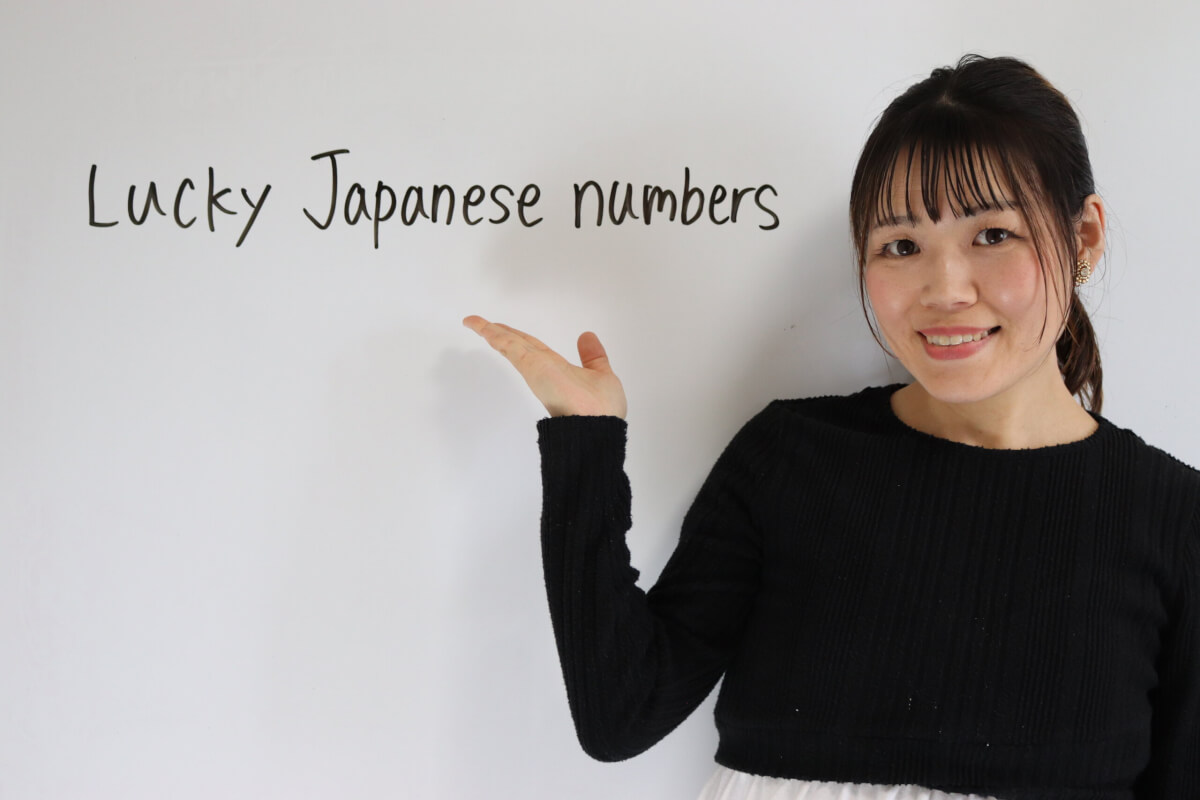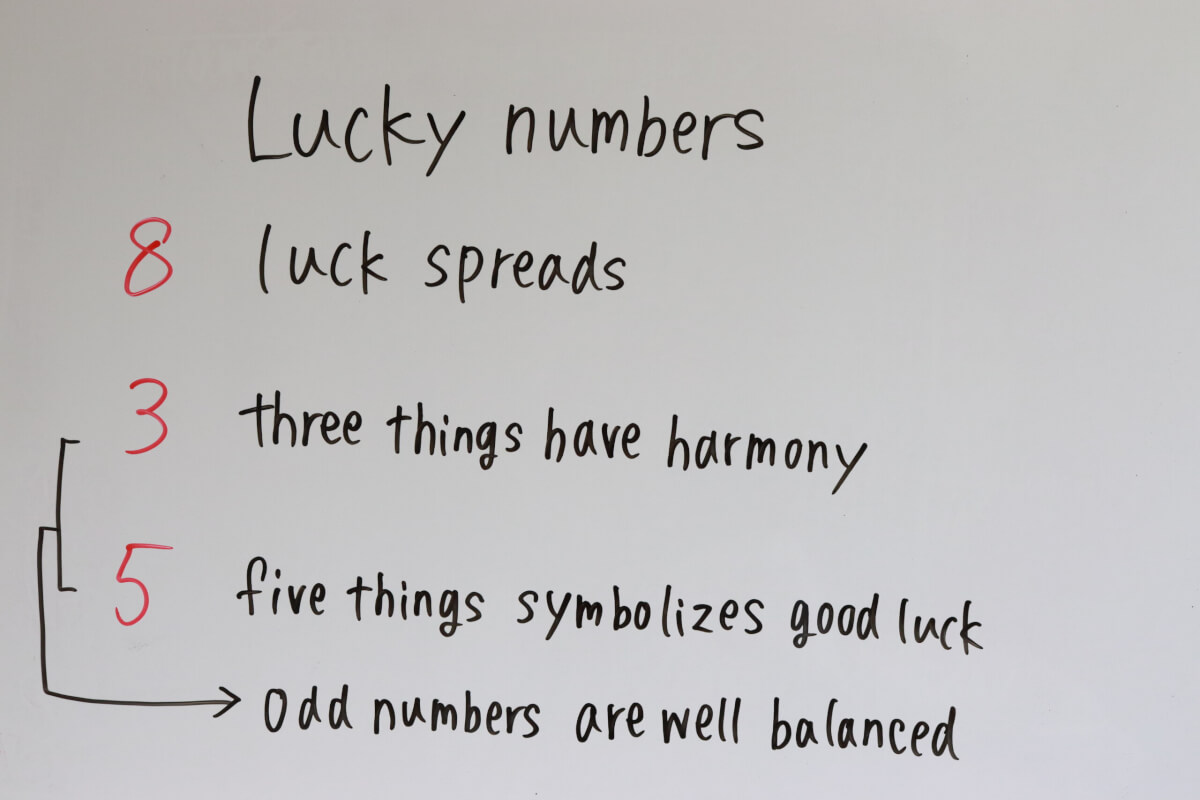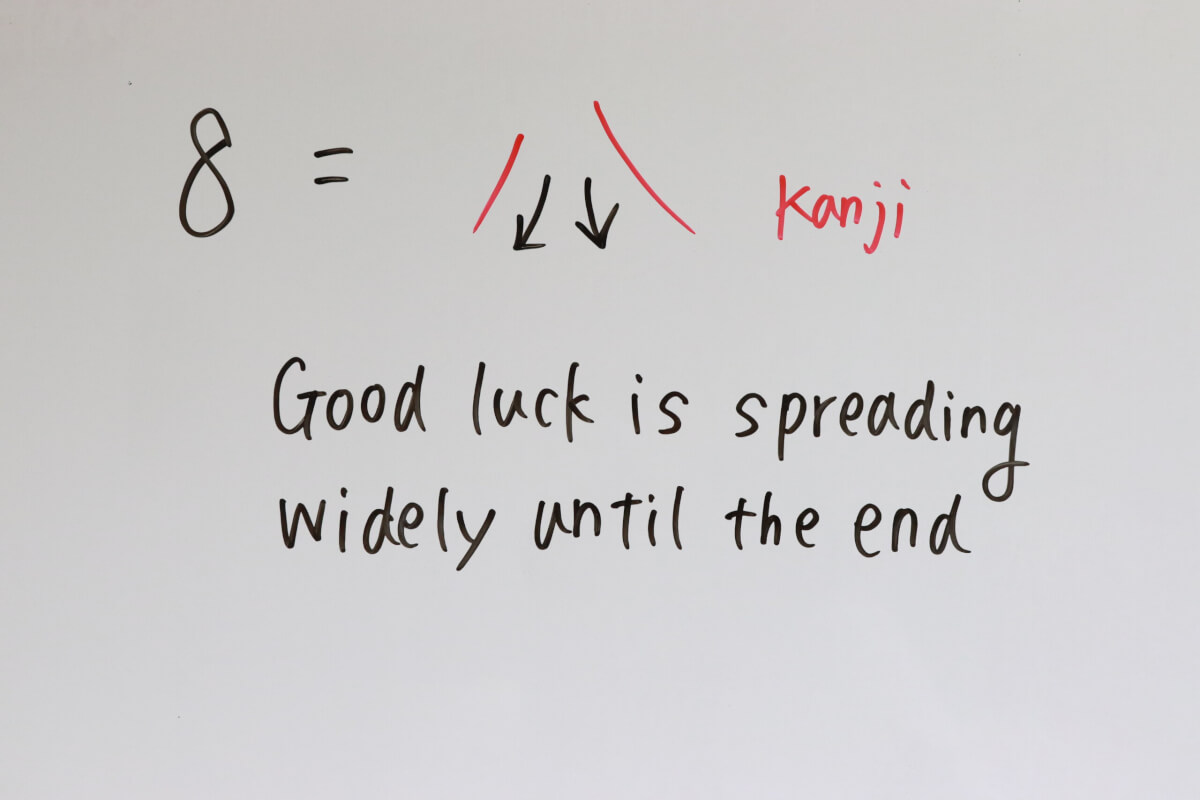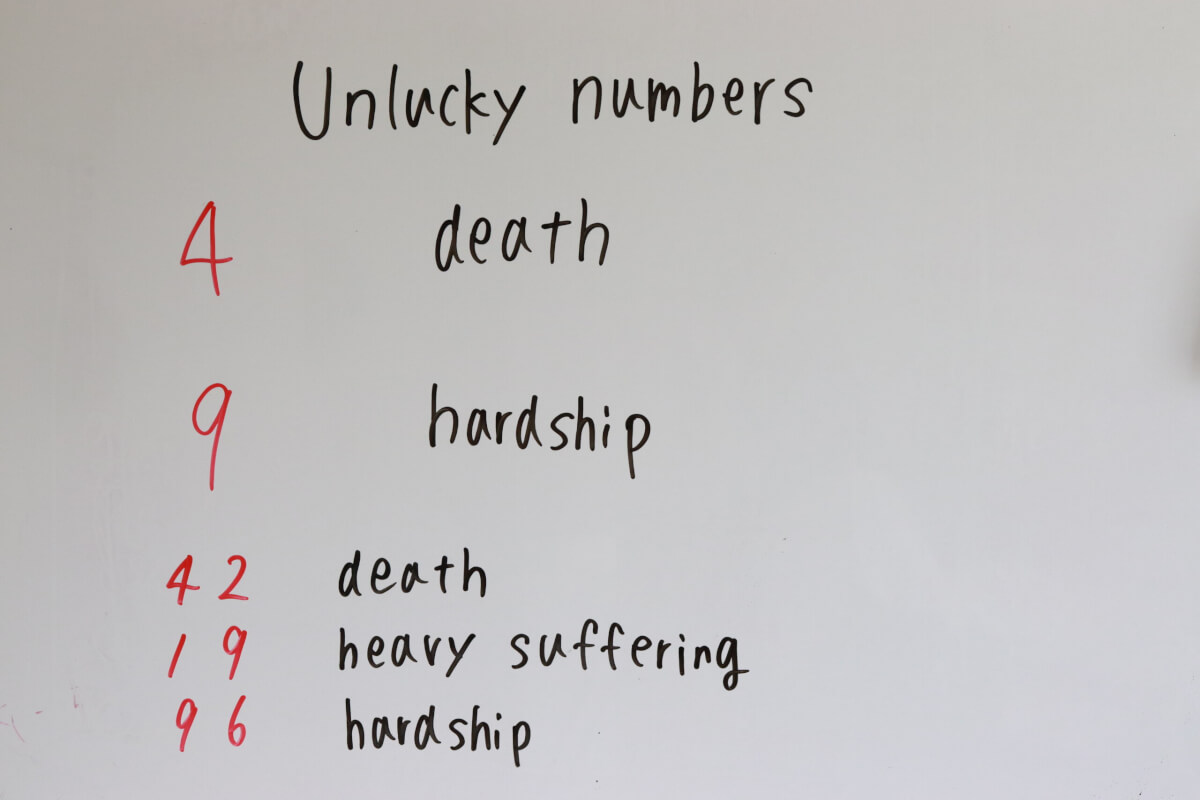- Release Date:
Lucky Japanese numbers

Japan also has several lucky numbers. This is a lucky number made up of Japanese words, so it may be totally different from those in other countries. Let's learn the lucky numbers that Japanese people naturally and unconsciously choose.
What are Japanese lucky numbers?

The most auspicious number in Japan is 8. The other good numbers are 3 and 5.
Why are they lucky numbers?
Why is each number considered a lucky number?
8
First of all, Japanese people say that 8 is a good number because of the shape of the kanji. This is an old way of thinking, and not many young people say this, but it is good to know.

Number 8 is considered "末広がり, suehirogari" in Japan. "Suehirogari" means that 8 is written in Kanji characters as the character spreads widely towards the end. It is expressing a sign of good luck: luck is spreading until the end.
3
3 is also considered a good number. This is because in Japanese tradition and culture, three things are combined to create harmony and safety, such as the “三種の神器, /san shu no jin gi/ three sacred treasures,” the “三位一体, /san mi ittai/ trinity,” and the “三権分立, /san ken bun ritsu/ separation of powers.
Japanese people have a particular preference for numbers that are not divisible and odd numbers. This is because odd numbers have no counterparts and thus represent balance and stability. In Buddhism, incense sticks must be odd numbers like three. (My grandmother always said that.)
5
Five is another number that is odd and is said to be auspicious.
This is also said from Japanese tradition, because there have been many cultural ideas using the number 5 since ancient times. There are “五方位, /go hou i/ Five Directions” and “五行思想, /go gyou shi shisou/ Five Elements” that originate from China. The “五感, /go kan/ five senses” that people have are also 5, right?
What are Japanese unlucky numbers?

In Japan, 4 and 9 are considered unlucky numbers. Also, two-digit numbers with 4 and 9, such as 42 and 19, are often considered unlucky.
Why are they unlucky numbers?
Why are these numbers considered bad luck?
4
4 is read as “yon” or “shi” in Japanese.
The “shi” of the two is read the same way as “死, /shi/ death”. Therefore, 4 is a number associated with death.
In Japanese hotels and hospitals, 3A and 3B are sometimes used to avoid the number 4, even on the fourth floor. Even at important events such as weddings, many people avoid days with 4.
9
9 is read as “Kyu” or “Ku”. Of the two, “ku” is read the same way as “ku” in “苦, /ku/ hardship”.
Again, the Japanese reading of the word is influenced by the ominous Japanese reading of the word.
However, 9 is not considered as unlucky as 4.
42
The number 42 reads “yonjuu ni” but can also be read as “shini”. This is the same reading as “死に, /shini/ death” and is considered an unlucky number.
19
The number 19 is read as “Juukyuu,” but since 9 can also be read as “Ku,” it is considered bad luck, since “重苦, Jukyu” = heavy suffering, referring to the addition of considerable hardship.
96
96 is read as “Kyujuroku”, but can also be read differently as “苦労, /kurou/ hardship”. It is not a good omen since the number represents hardship.
Where are lucky/unlucky numbers used in Japan?
Lucky numbers are often used on car license plates. You have to pay some cost and also, popular license plates have a lottery.
They are also often used for the amount of a product or a phone number. Some people also care about the floor number of their apartment building or their street address.
Conversely, unlucky numbers tend not to be used in these areas. But some people, like me, don't care at all.
Numbers as a secret language
The Japanese language also has secret words. The following is a summary of them, especially those using numbers. It would be interesting to know them.
39
The Japanese pronunciation of the English word “Thank you” is “サンキュー, /san kyu/”. 3 is "san", and 9 is "kyuu", so 39 = Thank you.
4649
Japanese people often say, “yoroshiku onegaishimasu.” and "yoroshiku" in short. The Japanese pronunciation of “Yoroshiku” is 4=yo 6=ro 4=shi 9=ku.
11
The number 11 is sometimes used to mean “good /ii/". 1 is ichi, so it is shortened to “い, /i/”.
Japanese readings are applied to numbers and used for corporate telephone numbers. Since they are often used, you can try to imagine what the numbers mean.
